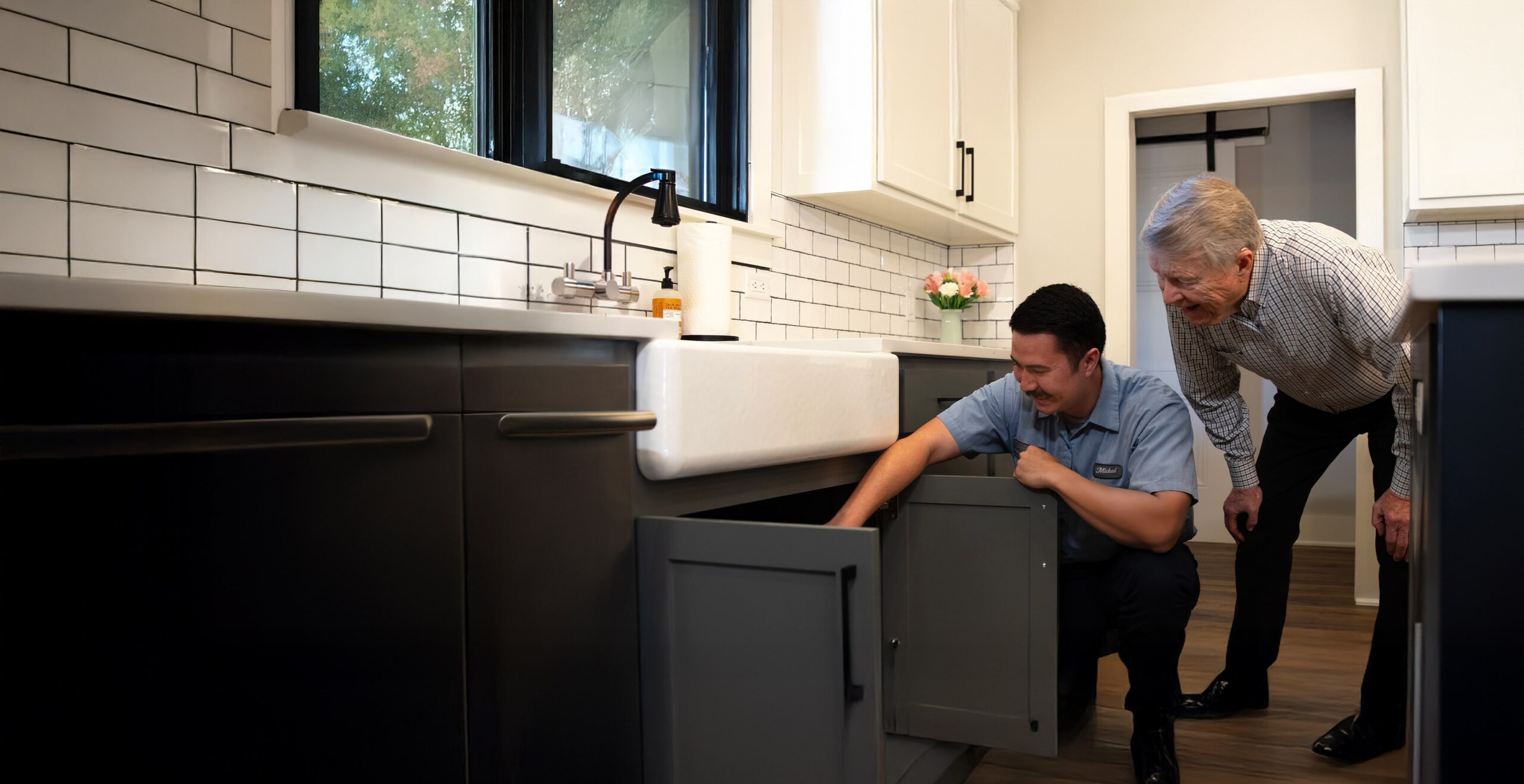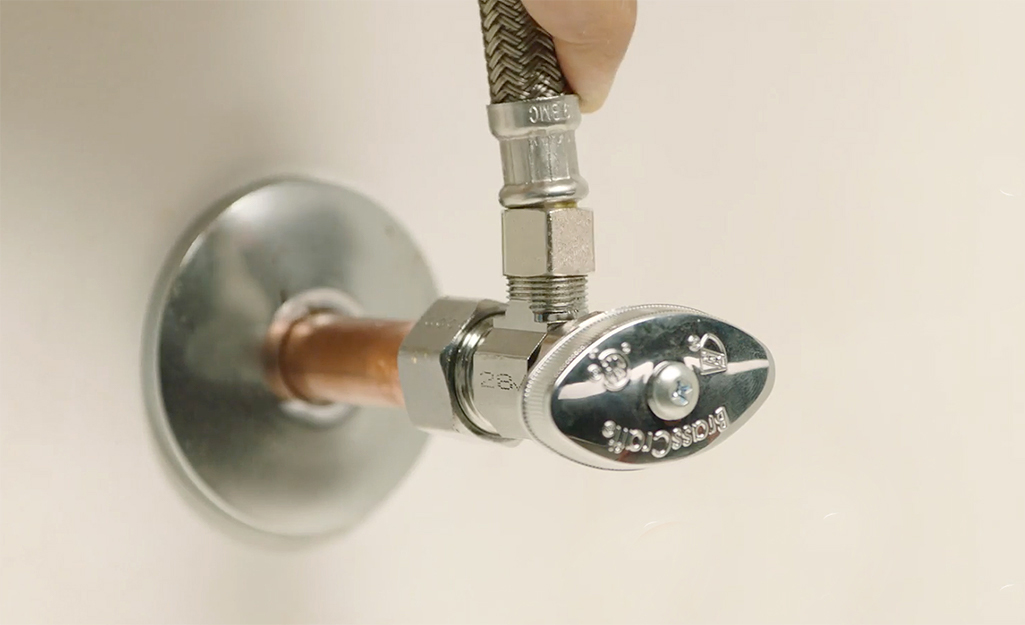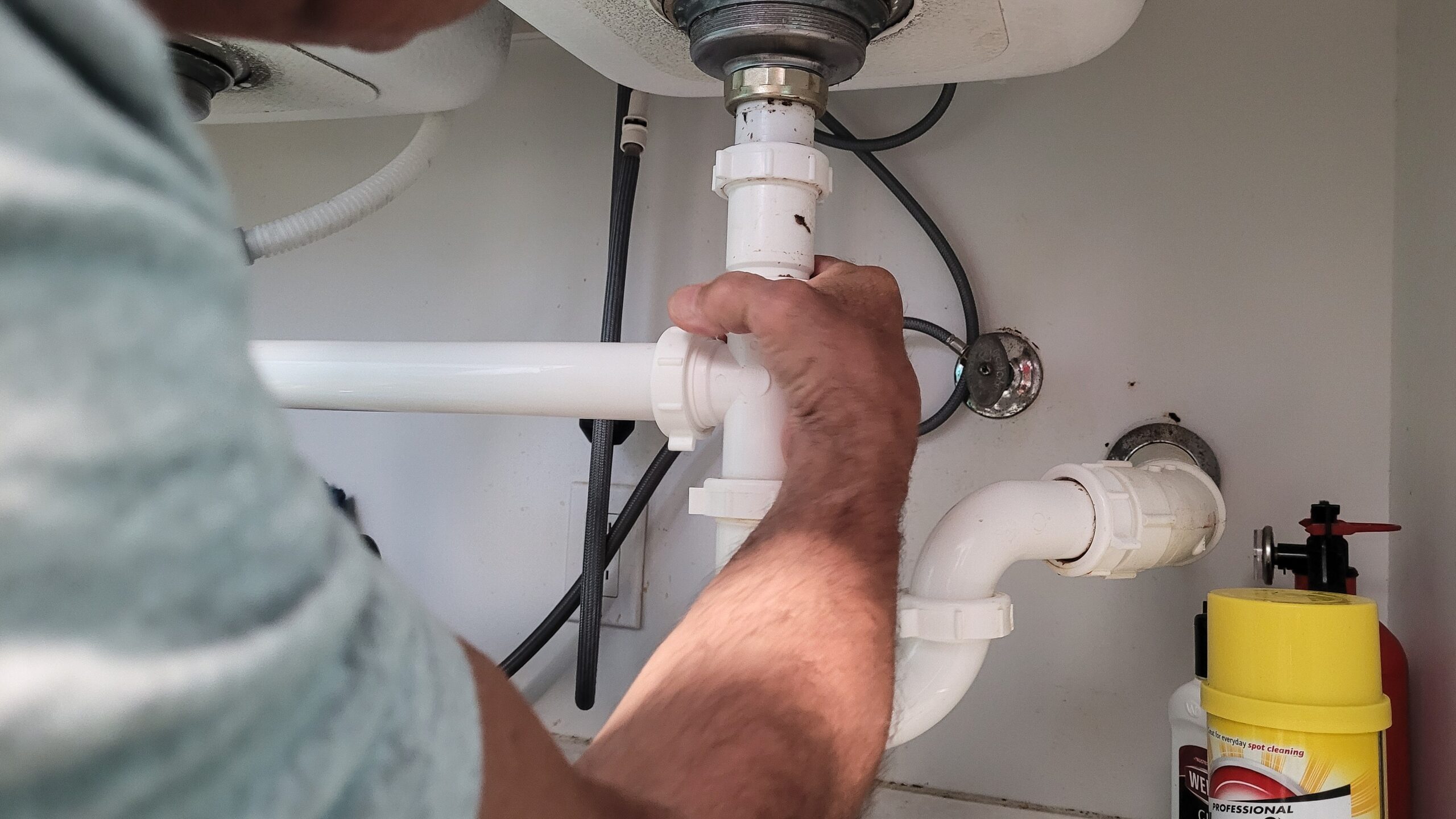Want to save with Paschal? Don’t miss our current offers and specials

Want to save with Paschal? Don’t miss our current offers and specials
Return to Paschal Resource & Education Hub

Understanding the top plumbing inspection failure reasons can save you time, money, and stress. Even if you’re not buying, selling, or remodeling a home, a plumbing inspection can still be a smart move. Small issues like leaks, outdated materials, or missing shut-off valves are common plumbing inspection failure reasons that can go unnoticed until they cause big (and expensive) problems. Whether you want peace of mind, are prepping for future renovations, or just haven’t had your plumbing looked at in years, an inspection can uncover problems early — before they become emergencies.
A licensed inspector checks to make sure everything is installed correctly, safe, and up to code. But most people don’t know what plumbing issues are deal-breakers. Here are 10 common plumbing inspection failure reasons, where those problems might show up, and what to watch for.
Where to look: In the bathroom, on the wall behind your tub or shower. You might have a removable panel in the wall, closet, or even in a cabinet.
Why it matters: Plumbers need to access the valves that control water flow to your tub or shower in case of a leak or repair. If they can’t reach it without cutting into a wall, it’s a code violation according to standard plumbing codes.

Where to look: Under every sink and behind every toilet.
Why it matters: These little valves let you turn off water to just one fixture instead of shutting off the whole house. Missing or stuck valves are among the most common plumbing inspection failure reasons and can quickly turn a small leak into a major problem. Proper shut-off valves are required by most local codes and recommended by plumbing experts like the EPA.
Where to look: Under sinks—especially in older homes.
Why it matters: S-traps allow sewer gas to escape back into your home. P-traps hold water that blocks those smells. S-traps are no longer allowed by most modern plumbing codes due to this hazard, making them a key plumbing inspection failure reason. Learn more about traps from the International Plumbing Code.
Where to look: Behind walls or under floors where your drainpipes run.
Why it matters: Drainpipes must be angled properly—too flat and water won’t flow, too steep and solids won’t move properly. Both cause clogs and slow drains, frequent plumbing inspection failure reasons. The Plumbing Foundation has detailed info on proper drain installation.
Where to look: Plumbing vents usually exit through the roof or connect to a main vent line in the attic.
Why it matters: Without proper venting, drains can gurgle, smell, or suck water out of traps—letting sewer gas in. This is a common cause of plumbing inspection failure and a serious health concern.

Where to look: In basements, crawlspaces, utility rooms, or anywhere plumbing is visible.
Why it matters: Pipes should be securely fastened. Sagging or loose pipes can crack or leak. Leaks cause water damage, mold, and higher bills — automatic failures on inspections, and major plumbing inspection failure reasons. The EPA’s guide on leak prevention is a helpful resource.
Where to look: Outdoor spigots, irrigation systems, and some water heater setups.
Why it matters: Cross-connections allow dirty water to flow back into your clean water supply. This is a health hazard and a key plumbing inspection failure reason. The EPA’s Cross-Connection Control guide explains how to avoid this issue.
Where to look: In garages, utility closets, basements, or attics.
Why it matters: Water heaters must be installed with safety features like pressure relief valves and safe drain lines. Improper setups can be dangerous and lead to inspection failure. Check manufacturer and code requirements on Water Heater Safety.
Where to look: On your kitchen sink, sometimes a small cap next to the faucet.
Why it matters: Air gaps prevent dirty water from backing up into your dishwasher and contaminating clean dishes. Missing or incorrect air gaps are common plumbing inspection failure reasons. Learn about air gap requirements from the Plumbing Code.
Where to look: Anywhere someone might have made a plumbing repair with the wrong parts—under sinks, behind walls, near water heaters.
Why it matters: Using incorrect pipes or fittings, or mixing incompatible materials, can lead to leaks and health risks. Inspectors will catch these violations, which can cause you to fail.
Failing can lead to:
Delays in selling your home or completing a remodel
Required repairs that add unexpected costs and time
Possible removal of recently finished work to meet code
Issues with home insurance coverage
Safety risks from leaks, faulty pipes, or gas hazards
Even if you’re not selling, failing means your plumbing might not be safe or reliable. Catching problems early helps avoid costly water damage and health risks down the road.
That’s what we’re here for. Paschal’s licensed plumbers can inspect, repair, or upgrade your system to keep your home safe — and up to code.
Want peace of mind — or just everyday reliability? Schedule plumbing maintenance with Paschal and stay ahead of costly surprises.
Learn more about our plumbing services